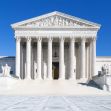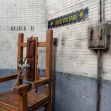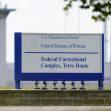The United States Supreme Court has denied review of a Texas inmate who was convicted of murdering and raping a 17-year-old girl, Bianca Maldonado, in 2009. She lived in his apartment at the time of her murder.
Areli Escobar asked the Court for relief after his legal team said Texas prosecutors confessed that there was an error in DNA evidence in his 2011 trial. The DNA evidence, which was inconclusive, was used in a misleading manner that helped secure his conviction.
Escobar’s legal team argued that Travis County prosecutors relied heavily on compromised evidence analyzed by the Austin Police Department crime laboratory. The defense says this evidence was crucial in securing the conviction, ultimately resulting in an unfair trial because the jury did not have all the facts.
Additionally, additional DNA testing was conducted just days after Escobar’s trial, but that testing was not presented to the defense team until 2017. That DNA test showed that the evidence presented at his 2011 trial was inconclusive—something the jury in Escobar’s trial never heard.
Additionally, during his trial, no eyewitness evidence was ever presented to the court. There was testimony from an ex-girlfriend who testified she was on the phone with Escobar and heard a woman screaming in the background, although she initially told investigators that she heard Escobar having “consensual sex.”
In presenting his case to the Supreme Court, current Travis County District Attorney Jose Garza agreed with Escobar’s legal team and joined Escobar in asking the Court for a new trial.
Texas prosecutors had confessed error over the misleading use of inconclusive DNA evidence at trial. Initially, the case was remanded to the Texas Court of Criminal Appeals for reconsideration. Despite this, the High Court declined to intervene a second time in the case and did not issue an opinion explaining its reasoning.
In his case, Escobar asked the Supreme Court to establish a standard for overturning capital convictions when prosecutors no longer wanted to defend the original case. However, the Court declined to establish such a standard.
Texas Attorney General Ken Paxton issued a brief in Escobar’s case opposing the request to have a standard in place for such events. Paxton argued that the Court should not grant relief simply because prosecutorial error had been identified.
Following the Supreme Court’s denial to review the case, Escobar’s legal team issued a statement that read in part, “Nothing in today’s decision alters the fact that Areli Escobar was wrongfully convicted, and the Supreme Court’s decision does not make Areli Escobar’s wrongful conviction right.”
Essentially, the conviction relied heavily on the flawed DNA evidence that the Austin Police Department crime lab was known for. In 2016, the crime lab was shut down because of widespread issues related to how evidence was tested and handled. When Escobar contested the DNA results in court, the court found that the lab had failed “to adhere to scientifically acceptable practices.”
Escobar is currently on death row for his conviction. A new execution date has not been set.






